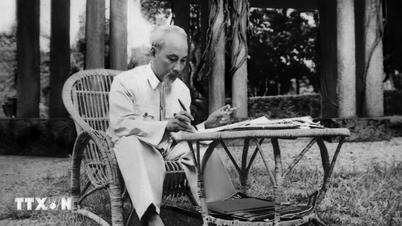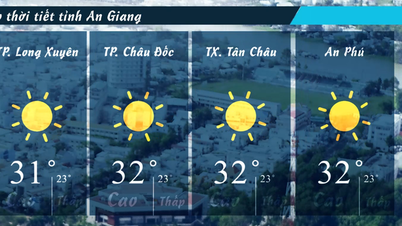Specifically, the data shows that the economy of the 20 countries in the Eurozone contracted by 0.1% in the third quarter of 2023, after shrinking by 0.2% in the second quarter. This figure shows the economic difficulties that the Eurozone is facing, including the cost of living crisis and concerns about falling global demand.
However, economic growth in the 27 member states of the European Union (EU), including those that do not use the Euro, was 0.1%. Also according to Eurostat's report, Germany - the largest economy in Europe in the third quarter just passed by - decreased by 0.1%, while Austria's economy decreased by 0.6%. France, the second largest economy in the EU, only grew by 0.1% and Italy's economy stagnated at 0%, close to falling into recession.
According to the German Federal Statistical Office (Destatis), German economic growth decreased by 0.1% in the third quarter of 2023 compared to the same period last year, increasing the risk of recession in Europe's largest economy.
“The German economy is once again on the brink of a technical recession,” said Claus Vistesen, chief eurozone economist at Pantheon Macro Economics. Alarming indicators from the German economy are ringing alarm bells for the eurozone.
However, Eurostat data also showed that Eurozone inflation fell to 2.9% in October from 4.3% in September, below the forecast of over 3%. The October inflation rate was the lowest since July 2021 when inflation was recorded at 2.2% and down from the peak of 10.6% in October last year after the Russia-Ukraine conflict broke out, pushing up energy prices.
Energy prices continued to fall sharply in October, falling by 11.1% after falling 4.6% in the previous month, according to Eurostat. The price increase for food and beverages also slowed, rising by 7.5% in October compared to 8.8% in September.
The European Central Bank (ECB) expects the eurozone economy to grow just 0.7% this year, 1% in 2024 and 1.5% in 2025.
Last week, the ECB kept interest rates on hold, breaking a streak of 10 consecutive rate hikes after eurozone inflation fell sharply in September and evidence of economic weakness mounted.
ECB President Christine Lagarde warned that risks to the region’s growth remained and said the conflict between Israel and Hamas meant the energy price outlook would become “less predictable”.
Previously, on September 14, the ECB raised interest rates for the 10th consecutive time (since July 2022) to a record high of 4% to cope with soaring consumer prices, despite concerns that raising interest rates could cause a severe recession in the Eurozone./.
Source link



























![[Photo] Central Propaganda and Mass Mobilization Department meets with exemplary journalists](https://vphoto.vietnam.vn/thumb/1200x675/vietnam/resource/IMAGE/2025/6/21/9509840458074c03a5831541450d39f8)
























![[Maritime News] Wan Hai Lines invests $150 million to buy 48,000 containers](https://vphoto.vietnam.vn/thumb/402x226/vietnam/resource/IMAGE/2025/6/20/c945a62aff624b4bb5c25e67e9bcc1cb)








































Comment (0)